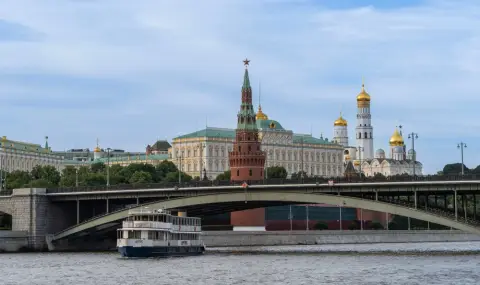Ukraine is increasingly suffering from a shortage of skilled labor and destroyed infrastructure. The decline in the German car industry affects many countries in Eastern Europe, writes Frankfurter Allgemeine Zeitung, reports "Focus".
Two and a half years after the start of the war in Ukraine, the Russian economy is still booming. Russia is among the countries with the fastest economic growth in Central and Eastern Europe. On Thursday, the Vienna Institute for International Economic Research (WIIW) again revised upward its economic forecast for Russia.
The gross domestic product of the country under Western sanctions is forecast to grow by almost 4% this year. This is four times faster than the European Union average. Growth is expected to slow to 2.5% next year. Russia barely experiences wartime spending: the budget deficit will be 1.5% of GDP this year and fall to 1% in 2025.
On the other hand, Ukraine's economy, which shrank by almost a third in 2022, is barely meeting its targets. Gross domestic product growth is expected to be 2.7% this year and 3.3% next year.
With the mobilization of additional military personnel, the country faces a shortage of skilled workers and destruction of energy infrastructure. "In winter, Ukraine may lack about a third of the necessary electricity," points out Olga Pindyuk, an economist at WIIW.
Due to high military costs, the country can only finance itself through Western aid. Next year, the new debt is likely to be around 16% of GDP. However, Western military aid will bring economic benefits to Western countries themselves. "All the money that the United States spends on the defense of Ukraine stays in America,”, adds Pindyuk.
The consequences of the war will be devastating for Ukraine. But for the region, the economic impact will be minor, says Richard Greavson, WIIW's deputy director. The institute predicts that the conflict will continue until at least 2026.
It is assumed that China will continue to support Russia and the US will continue to support Ukraine. However, this could change if Donald Trump wins the election, which would make Ukraine's defeat more likely.
Tightening requirements for the sale of assets to foreign companies makes it difficult to leave the Russian market. Vasily Astrov, WIIW's Russia expert, explains: "Companies will have to write off almost everything."
According to Astrov, the Austrian Raiffeisenbank and the Italian financial institution Unicredit are systemically important banks for Russia. "The Russian government will do everything possible to keep these banks in Russia," he added.
Some countries in Central and Eastern Europe were hit hard by the recession in Germany. However, their economies are growing faster than those in the Eurozone. However, former communist countries continue to lag behind economically.
Besides the Czech Republic, Slovakia and Hungary, Romania is also connected to the paralyzed German industry. "The crisis in Germany is weighing on many economies in the region and limiting their growth prospects,” says Richard Greavson.
The decline in the production of the automobile industry, which is of great importance to these countries, also has a negative impact. For example, exports account for about a third of the region's economic output. However, the slowdown in output growth has a delayed effect, so economists expect further problems.
Compared to its summer forecast, the WIIW lowered its growth expectations for eastern EU economies by 0.4 percentage points. The forecast is currently for average growth of 2.2% to 2.9%.
This means that these countries are likely to significantly outperform the Eurozone within two years and continue the economic catch-up process. Poland leads among the eastern EU member states in terms of growth.
Despite its proximity to Germany, the Polish economy is making progress. This is partly due to the size of the economy, which makes it more sustainable. The new government in Warsaw receives much more funds from the European funds.
